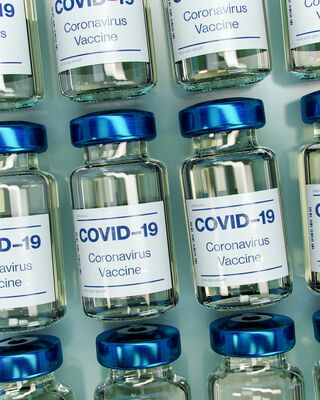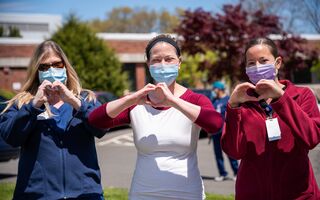Health
How COVID Changed Hoarding Disorder
Has a new cohort for hoarding disorder developed as a result of the pandemic?
Posted January 5, 2021

December festivities are notoriously connected to highly charged emotional exchanges that leave many feeling overwhelmed, sometimes to the point of immobility.
Coming out of 2020, we might be able to handle one loss or setback, like not being able to be with loved ones because of COVID-19 restrictions, the stress from indecision caused by the reality of significant risk by attempting to do so, desperately missing loved ones who are no longer with us, especially if this is our first time without them. It can be an internal struggle to feel the joy, fun, connection, and positives, however.
Many continue to brace themselves against seasonal patterns of conflict, substance use, violence, sadness, fear, anxiety, and let’s not ignore regret at the arrival of January’s credit card statement due to expressing themselves through things.
Filling the void with things is also associated with hoarding disorder. Chaos and strains of life can increase the need to give and receive “little jolts of joy” which is tempting and understandable.
2020 brought with it 10 months of strain and isolation in an effort to protect ourselves and our loved ones from COVID-19.
We entered this holiday time learning that there will be at least another six months to a year ahead before we can hope for a semblance of normalcy.

Access to vaccines is believed to be our surest protection but only if enough people cooperate to reach herd immunity. These burdens are our current reality, but they are not necessarily our future. We can change the outcome for ourselves and those we value most.
This chaotic time puts many more at increased risk of developing hoarding disorder by becoming vulnerable to Path #3, mildly to chronically disorganized and then becoming vulnerable.
Many mental health professionals have attempted to help alleviate exacerbated stress in people by offering free online support. If hoarding is a concern to you, see below for help to move forward and avoid hoarding’s risks.
Disorders like depression and many others are often opportunistic. They take advantage of any situation regardless of anything that defines us. No one seems exempt.
As a mental health professional, I am extremely concerned that we have a new cohort who, when they have time to stop and reflect, are going to realize they have become severely impaired by carrying the Yeomans weight of care for multiple millions of people.
They are our first responders. Everyday worldwide they put themselves at physical risk from COVID. They face witnessing unfathomable numbers of incidents no person should have to ever see, even occasionally.

I wonder how many of these people will be further disabled and end up overwhelmed on hoarding disorder’s third path. It would be a natural consequence of the burden first responders face every day. It is a foreseeable side effect, simply not to care quite as much about falling behind, becoming less organized, less diligent, less available for their own self-maintenance. They empty themselves daily as they meet the demands their dedication demands of them. Day after day, they make a superhuman effort to protect us all and help some through a lonely and frightening end.
I fear that worldwide, we will have a new cohort of people overwhelmed and at risk of impaired mental, physical, and spiritual health including hoarding disorder combined with anxiety, PTSD, battle fatigue, and operational stress injury.
To all of us spared from paying a higher price than wearing a mask, social distancing, washing our hands regularly, and having to settle for Zoom meets in lieu of in-person seasonal celebrations, I want to lay down a New Year’s challenge. The challenge is to do more than simply call our first responders “heroes.”
Hero is simply not enough. Let us find ways to lighten their load through practical acts of kindness in whatever way is possible.
We will have a wave of first responders equal to our soldiers returning from war. They deserve more than empty titles like "hero." Let's be ready to be there for them as they have been there for us.
This looming concern for our first responders, i.e., all hospital staff, paramedics, firefighters, police, and the support staff those agencies require, compelled me to add my voice and ask others to do the same on the issue of supports for first responders being kept in the forefront. This weekly blog seemed an excellent way to do it.


